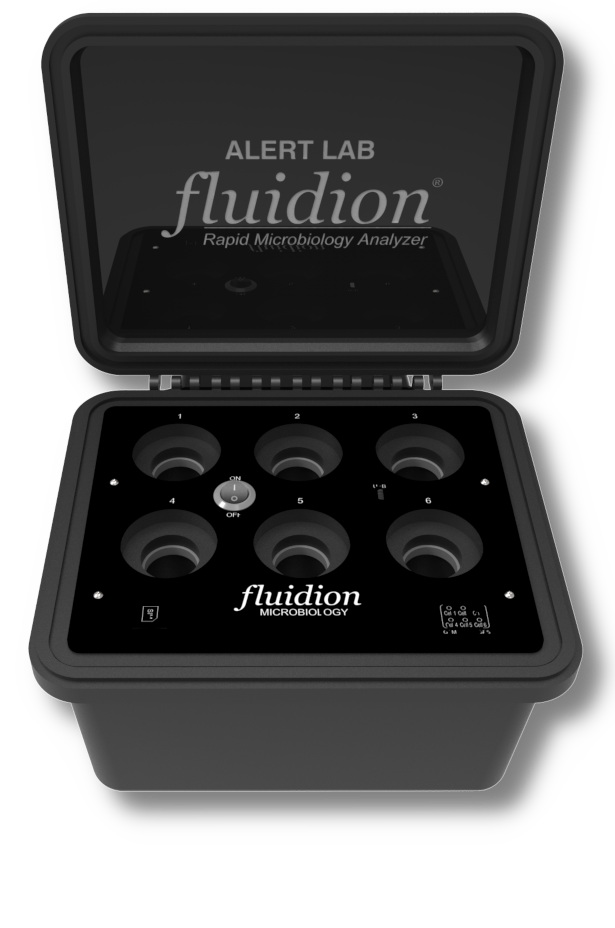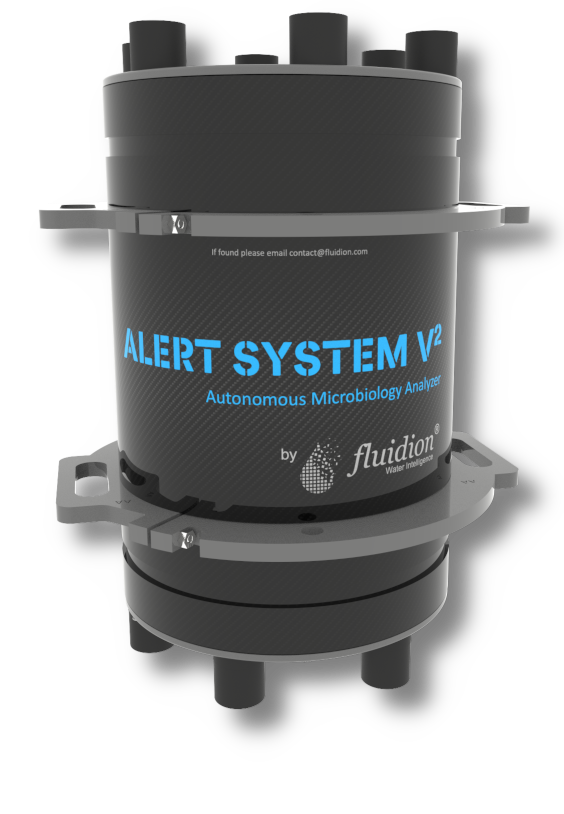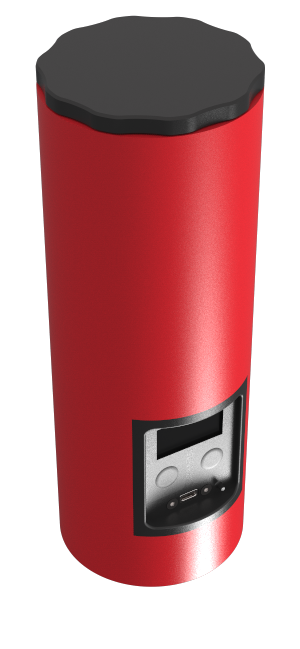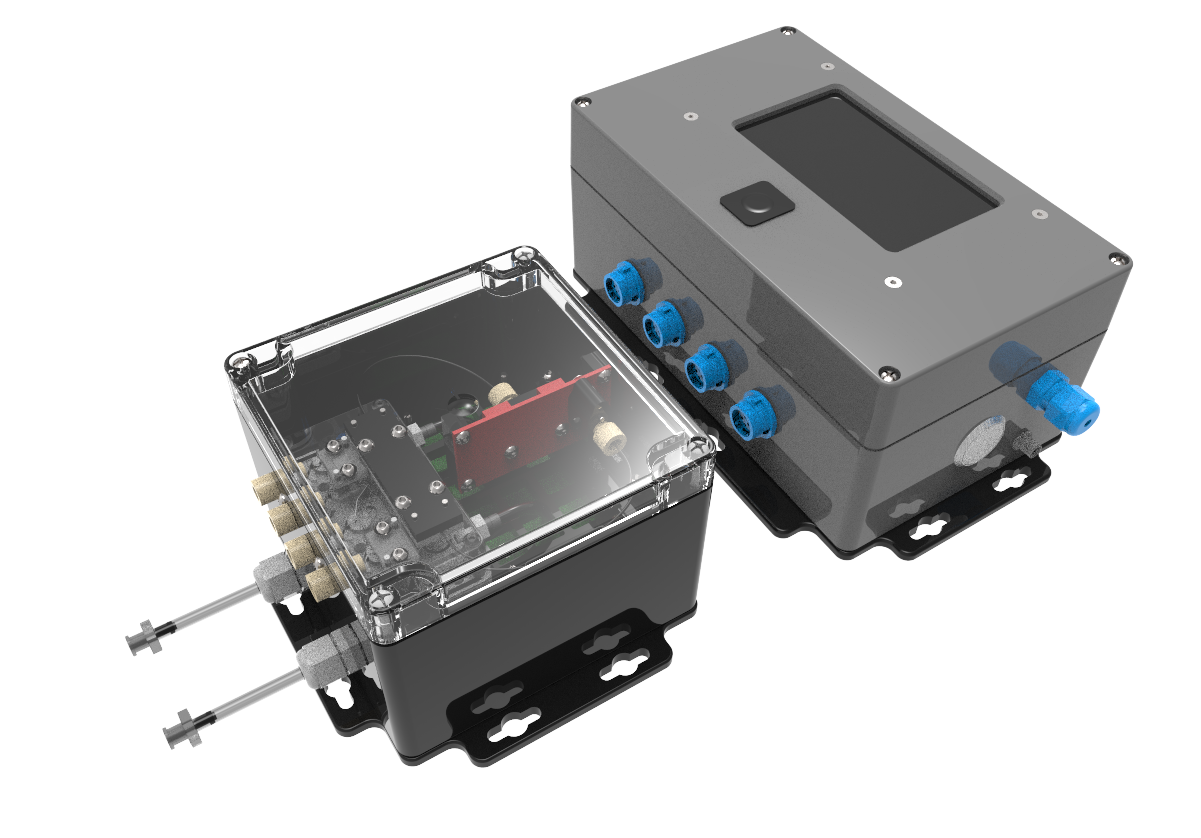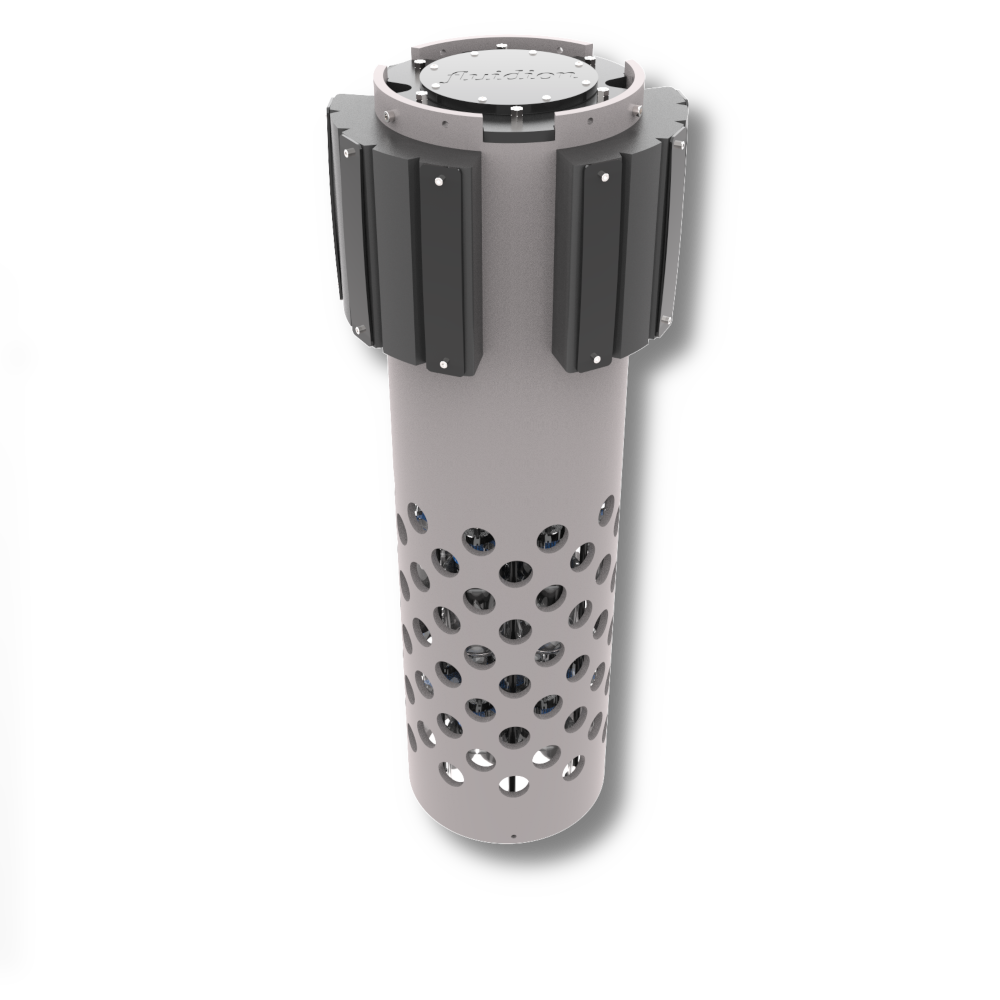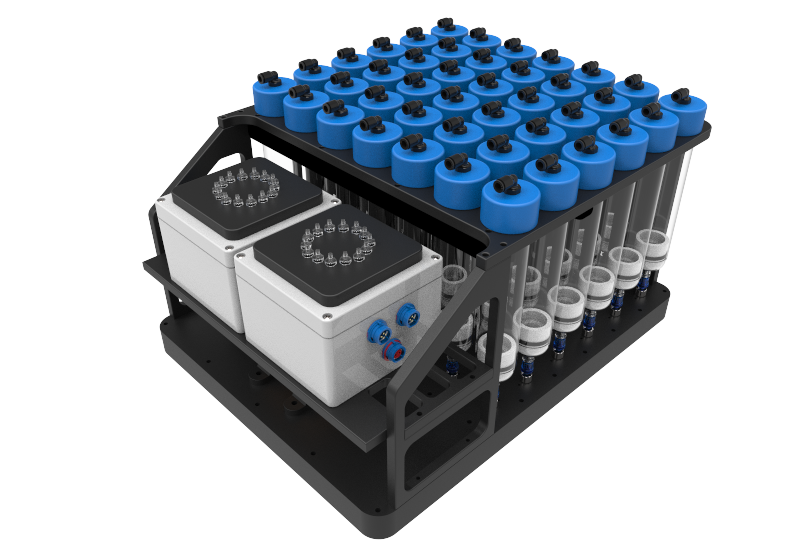
Wastewater
Process Optimization - Treatment Assessment - Compliance
Wastewater management, encompassing the collection, treatment, disposal (or, increasingly, recycling) of wastewater, is crucial for protecting public health and mitigating pollution risks to surface waters. Wastewater can originate from domestic, industrial, or agricultural sources and is typically processed in specialized wastewater treatment plants. Yet, the challenges of aging infrastructure, urban population growth, and climate change directly affect these plants' efficiency. Small on-remise waste treatment plants are becoming increasingly common in remote areas, or in boats, campers and mobile homes. Integrating continuous monitoring both within and downstream of treatment plants is essential to evaluate treatment efficiency, refine processes, and maintain compliance with progressively stricter regulations.
Treatment Benchmarking
Efficient wastewater treatment is vital for regulatory compliance and environmental protection. Regular, consistent monitoring of wastewater constituents allows operators to adjust processes and anticipate potential issues. The Fluidion automated and autonomous analyzers are ideal for monitoring and benchmarking different treatment and disinfection processes. They deliver high-frequency data, enabling continuous process monitoring, and consequently reduce operating costs by optimizing energy consumption, chemical use, and sludge disposal. These analyzers also support efforts to curtail greenhouse gas emissions, a crucial concern given the current climate situation. Disinfection processes, whether chemical or UV-based, can now be scrutinized in real-time. Mobile treatment stations can be evaluated on-site, under full operational conditions, to ascertain their effectiveness. Adopting these sophisticated wastewater quality monitoring systems eradicates uncertainties, enhances processes, and diminishes treatment expenses. This paves the way for a future where wastewater treatment is not only efficient and cost-effective but also environmentally conscientious.
Effluent Quality
Protecting the environment and public health is a significant challenge for industries responsible for treating and discharging wastewater, underscored by stringent regulations on effluent quality. Continuous quality control of effluent leaving treatment plants is vital to ensure full compliance and to prevent poorly treated effluent from contaminating the environment. Implementing Fluidion's innovative self-contained monitoring solutions enables the provision of reliable, continuous data on effluent quality while mitigating associated costs and logistical challenges. Installing these automated monitoring systems facilitates swift responses to alerts or unexpected events and the proactive pinpointing and resolution of problem areas. Notably, ensuring effluent quality promotes improved recycling and reuse of water for industrial or agricultural applications.
Water Recycling
In an era where water scarcity is a growing concern, water recycling (also termed reuse) emerges as a vital strategy for conserving this invaluable resource. Nevertheless, its safe and effective use requires continuous monitoring to guarantee its quality and adaptability for diverse purposes, ranging from irrigation and industrial processes to toilet flushing and even potable water reuse. Fluidion delivers cutting-edge monitoring solutions that combine automation, autonomy, and IoT connectivity for remote monitoring. Fluidion instruments are designed to rigorously check water quality for chemical or microbial contaminants, enabling early detection of abnormal parameters and prompt notification to operators about necessary maintenance, thus safeguarding public health and meeting rigorous water quality benchmarks. This strategy does not only increases confidence in the safety of recycled water, but also curtails the demand for virgin water, alleviating strains on the depleting freshwater reserves worldwide.

